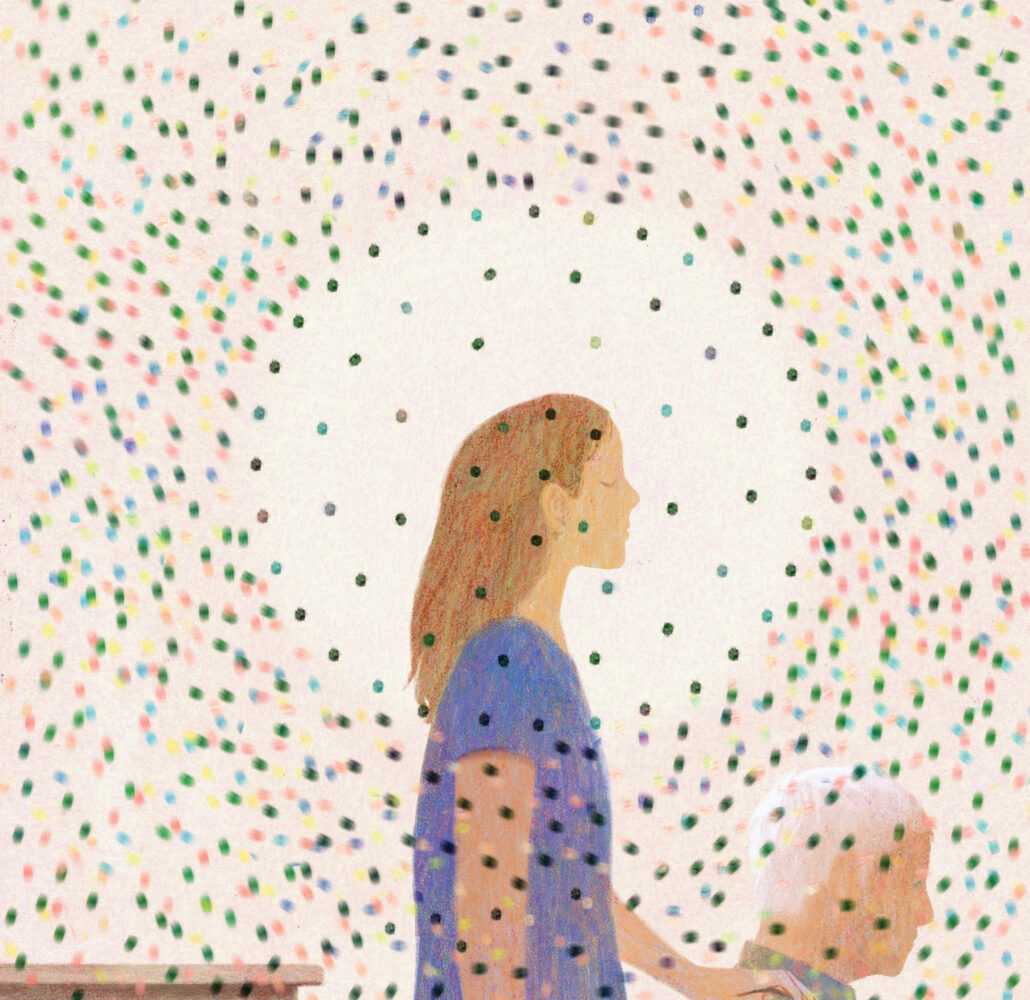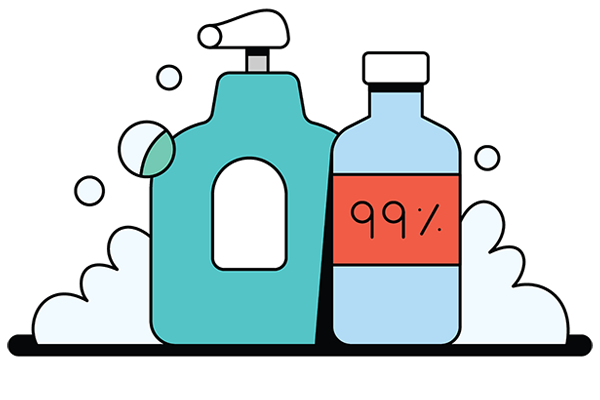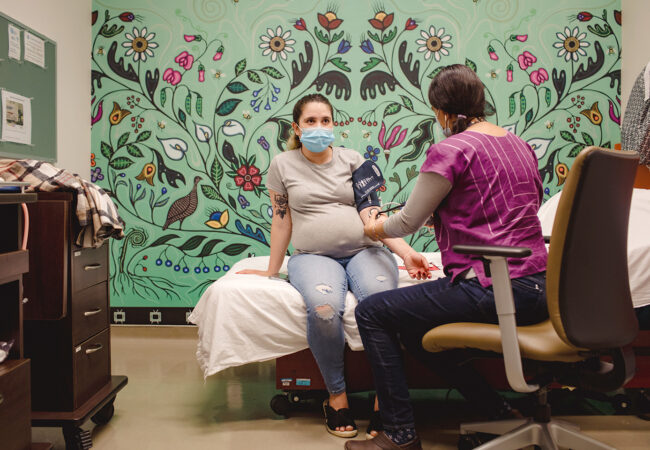More than one-fifth of Canadians over age 15 provide care to an older loved one, but this work is often invisible and goes unnoticed. Family caregivers are unpaid, working from their homes, helping their loved one with daily chores such as laundry and preparing food, walking with them on quiet residential streets and dealing with night terrors.
And yet, our health care systems would fall apart without them. They’re allowing their loved ones to live at home for longer than they would otherwise, helping to take care of their basic needs. In the process, they can lose their own sense of self, and compromise their own mental and physical health.
“Many caregivers experience chronic stress,” says Dr. Alexandra Fiocco, professor in the Department of Psychology in the Faculty of Arts at TMU. “This is associated with accelerated aging and cognitive decline, as well as other poor health outcomes, as most illnesses are worsened by chronic stress.”
This is why Dr. Fiocco led a study to see if Mindfulness-Based Stress Reduction (MBSR)–a stress management program based on traditional Buddhist teachings–could help caregivers. First, she randomized almost 60 caregivers into two groups.
The first was a psychoeducation-support group who met once a week for eight weeks to talk about their challenges and learn about the importance of eating healthy, exercising and more. This approach was similar to programs offered by many community centres. “We wanted to know, is that really enough?” Dr. Fiocco explained. The second group was an MBSR group who met for two hours a week for eight weeks to learn various mindfulness and meditation techniques, which they were told to practise at home for 30 minutes each day.
The results were staggering: the MBSR group showed greater declines in perceived stress and depressive symptoms relative to the psychoeducation-support group. The depression scores in the mindfulness group improved by six points, indicating that most caregivers went from being categorized as depressed, to falling below the threshold for depression. Among the control group, the depression scores only decreased by two points, and many continued to report high levels of depressive symptoms.
The benefits of mindfulness
The mindfulness group learned to bring awareness to momentary experiences, whether they were pleasant, unpleasant, or neutral. They also learned about the importance of embodying mindful attitudes, such as patience, acceptance, letting go and non-judgment. In one practice, they repeated a mantra extending compassion and peaceful wishes for themselves and others. In another, they were taught to pay attention to sensory stimuli and be in the moment, even for mundane tasks like brushing their teeth.
Dr. Fiocco says mindfulness helps quiet the active mind. By being in the present, we are not ruminating about the past or worrying about the future. By quieting the mind, we are able to make more skillful decisions, even during challenging moments. “The day-to-day problem solving that caregivers have to engage in can be improved with a clear mind,” explains Fiocco. “When we're stressed, we’re reactive. We might say things that are hurtful, which can lead to a lot of interpersonal conflict and regret.”
Stress takes a toll on the brain too. Another study Dr. Fiocco published in International Psychogeriatrics found that caregivers perform more poorly on cognitive tests compared to non-caregivers of similar age, education and income levels.
One caregiver in the mindfulness group told Dr. Fiocco that she had carried resentment toward her mother, who she was caring for. Through the program, she no longer “felt angry all the time,” and her relationship with her mom improved. Another caregiver brought mindfulness into their caregiving routine. “They would sit in stillness with their loved one,” says Dr. Fiocco.
When Dr. Fiocco followed up with the caregivers a year later, she found that the stress and depression scores remained better than they were before the classes. Those who continued to practise mindfulness for a full year noted a dramatic improvement in ‘caregiver burden,’ a measure of the perceived strain that their older loved one added to their life. “This suggests that the attitude and outlook change that mindfulness brings isn’t something that develops over only eight weeks, but over time,” says Dr. Fiocco.
Encouraged by the positive impact of mindfulness on caregivers, Dr. Fiocco is now recruiting for a study to see if virtual mindfulness classes will have similar effects.
Related stories






